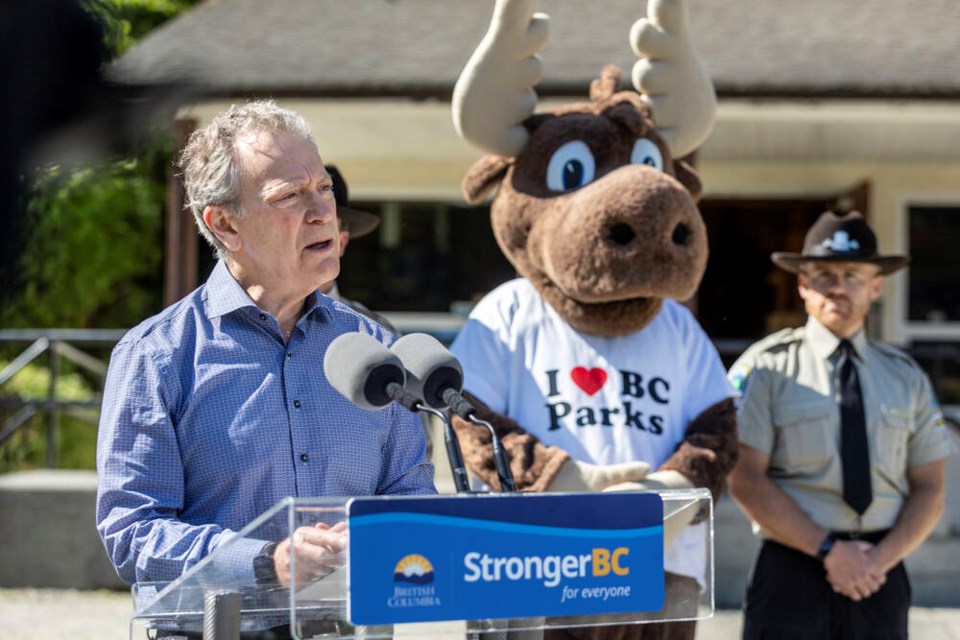With the Goldstream Provincial Park nature house as a backdrop, the provincial government announced $10 million in funding for the B.C. Parks Foundation on Thursday.
The foundation, created in 2017 with an initial $10-million provincial grant, is independent from government as the official charitable partner for B.C. Parks, the first organization of its kind in the country.
The province said it is modelled on California’s Golden Gate Conservancy and functions like a hospital foundation, in that it raises money for parks over and above government funding.
“The B.C. Parks Foundation brings British Columbians together to care for the incredible network of parks and protected areas that we cherish and that help define our province,” said Environment Minister George Heyman.
“This $10-million contribution further ensures the foundation’s long-term sustainability, so that together we can preserve many more of the most beautiful places and unique ecosystems in B.C. for our children, our grandchildren and for generations to come.”
Since its inception, donors have given $150 million to the foundation, whose projects have included helping the Tahltan Nation to protect the 3,500-hectare Tenh Dẕetle Conservancy (Ice Mountain) near Mount Edziza Provincial Park in northern B.C.
“Today, the province is making sure that British Columbians will always have a place to come together in the spirit of gratitude and celebration to support parks and protected areas, so that they flourish forever,” said foundation chief executive Andy Day.
“Nothing else provides so many benefits for so many people over time, whether by improving your mental and physical health, reducing climate change impacts, protecting other species, contributing to our economy or creating wonderful experiences with friends and family.”
The foundation supports a park-ambassador program, a “story trails” program featuring First Nations youth and elders, and initiatives to help vulnerable and marginalized B.C. residents spend time in parks.
It also helps Mosaic Settlement and Employment Services for Newcomers provide nature programs for those it serves. “This connection with the land is essential, as it has allowed space to reground, reflect and refocus,” said Mosaic executive director Monica Navarro, who notes 99% of the newcomers are refugees.
The province, which manages one of the largest park systems in North America, is currently working to conserve and protect 30 per cent of B.C.’s land base by 2030.
B.C. is home to over 1,000 provincial parks, recreation areas, conservancies, ecological reserves, protected areas and other conservation areas.



